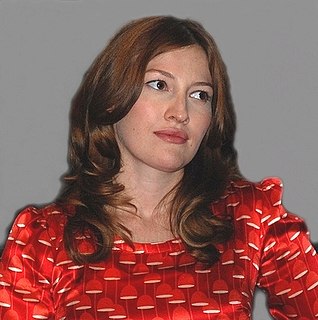A Quote by Orhan Pamuk
...a nation could change its way of life, its history, its technology, its art, literature, and culture, but it would never have a real chance to change its gestures.
Related Quotes
There seems to be something in the zeitgeist, and maybe it's a function of - I'm no analyst, nor am I a psychologist - when you look at things and say, What if I could go back and change things? I think we live in a world right now where people are asking those questions a lot. What if we could go back and change what we did? How would we change the way we handled things in the Middle East, and how would we change things with the banking industry, and how would we change economic and educational issues?
I used to believe that you could change the culture or behavior of a company. I still believe it's possible, but it is at least a five to ten year process, if you are successful at all. More recently, I have been attracted to the ideas of the behavioralist, Edgar Schein. Schein has argued that you cannot change the culture of a company, but you can use the culture of a company to create change. It's an interesting approach to overcoming resistance. And if you can change how a company does its work, you might eventually be able to change how its people think.
If the founders of a start-up are considering selling it, I'd advise them to consider the synergies. Could the buyer give you access to something you don't have now, like a certain technology? Would it make your life easier? Are you looking for a change? Things will change, so you have to be ready for that.
I lived in Italy for quite a while and married an Italian woman. While there, I immersed myself in the complete culture: the music, art, literature, film, food, and history. It's easy to fall in love with. As a country, Italy does a good job of holding onto its rich traditions and culture. There's a real lack of embracing history in America.







































